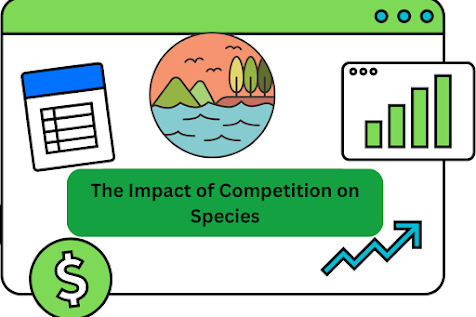In the natural world, species are constantly vying for resources to survive and reproduce. Competition for these resources, whether it be food, water, or shelter, plays a significant role in shaping the ecological niches of different species. While it can sometimes lead to conflict and even extinction, competition is ultimately a driving force behind the diversity and complexity of ecosystems. In this blog post, we will explore the importance of competition in ecological niches and how it impacts the survival and evolution of different species.
Understanding Ecological Niches
To understand the role of competition in ecological niches, it is important to first define what we mean by "niche." An ecological niche refers to the specific set of environmental conditions and resources that a species requires to survive and reproduce. This includes not only physical factors such as temperature, humidity, and soil type but also biotic factors such as food availability and the presence of predators or competitors. Each species occupies its own unique ecological niche, and the interactions between different niches help to shape the overall biodiversity of an ecosystem.
Types of Competition
There are two main types of competition that occur within ecological niches: interspecific and intraspecific. Interspecific competition occurs between individuals of different species that are competing for the same resources. For example, two different bird species may compete for the same food source, or different plant species may compete for the same patch of sunlight. Intraspecific competition, on the other hand, occurs between individuals of the same species. This can include competition for mates, territory, or other resources.
The Impact of Competition on Species
Competition can have both positive and negative effects on species within an ecological niche. On the one hand, competition can help to promote the evolution of specialized traits that allow species to better exploit their niche. For example, a bird species that specialize in feeding on a particular type of insect may evolve a more efficient beak shape or hunting technique. On the other hand, competition can also lead to negative effects such as reduced access to resources or increased predation risk. In some cases, competition can even lead to the extinction of certain species within an ecosystem.
An Overview of Their Role in Empowering Women Online
In conclusion,
competition plays a crucial role in shaping the ecological niche of organisms. It is through competition that organisms are able to evolve and adapt to their environments, leading to the development of diverse and complex ecosystems. The process of the competition involves the struggle for resources such as food, water, and shelter, and the selection of the fittest individuals who are better adapted to their environment. While competition can be intense, it also plays a crucial role in maintaining the balance of ecosystems, ensuring that no single species dominates and creating opportunities for other species to thrive. By understanding the dynamics of competition in the ecological niche, we can gain insights into the complex interrelationships between organisms and their environment, and develop strategies for conservation and management of ecosystems.


.png)

.png)


No comments:
Post a Comment